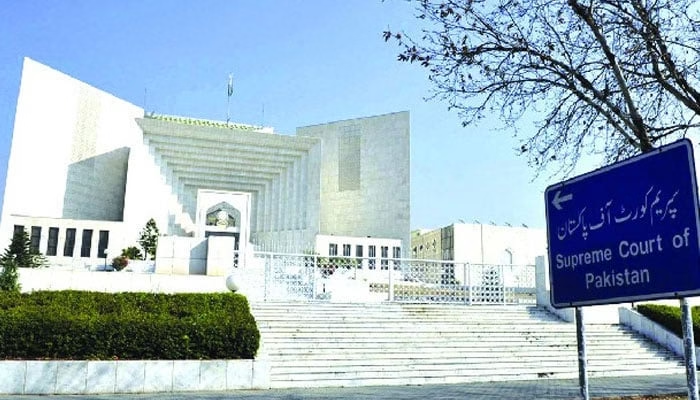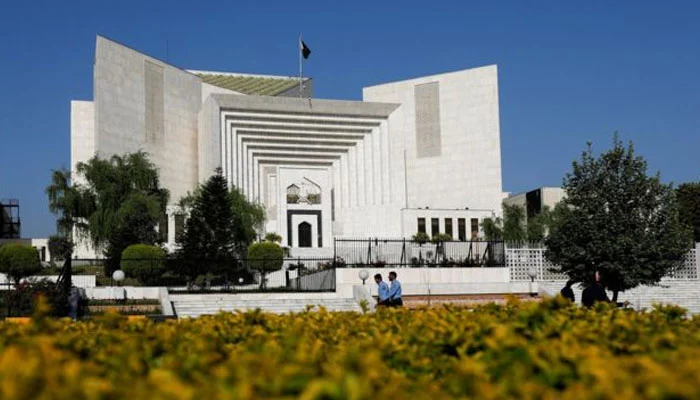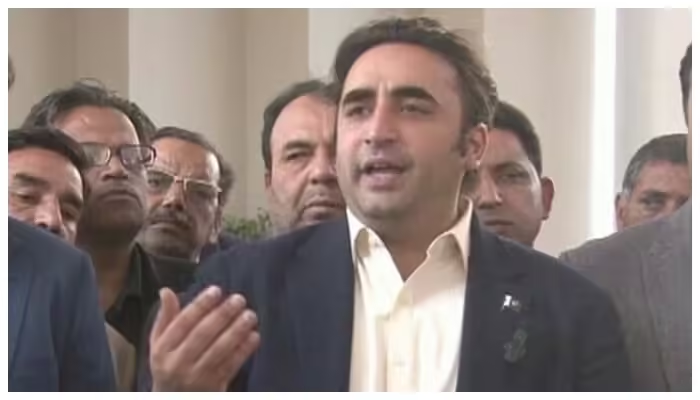The Supreme Court of Pakistan’s constitutional bench has raised significant questions about the trials of civilians in military courts, focusing on the Army Public School (APS) attack. Led by Justice Aminuddin, the bench explored why the APS attack, which had a clear connection to the military under the Army Act, was not tried in a military court. It also questioned why a constitutional amendment was necessary to allow such trials, shedding light on the complexities of Pakistan’s legal system in handling terrorism cases.
Context of the Hearing
The Supreme Court was hearing an intracourt appeal challenging the decision to try civilians in military courts. Defense Ministry lawyer Khawaja Haris argued that the nature of a crime determines its jurisdiction. Crimes linked to the armed forces, he explained, fall under the military court’s jurisdiction as outlined by the Army Act.
Justice Jamal Mandokhel raised concerns about the intention behind crimes, suggesting that motives against national interests could influence whether cases are tried in military courts. This highlighted a broader debate on the role of intent in determining jurisdiction.
APS Attack and Military Court Trials
Justice Mandokhel specifically questioned why the APS attack, which involved a clear nexus with the military, was not handled by a military court. He inquired about the necessity of the 21st Constitutional Amendment, which extended military courts’ jurisdiction to terrorism-related cases.
Khawaja Haris responded that the APS attack did have a military nexus, but the constitutional amendment was required to expand military courts’ scope to address crimes beyond traditional military duties. This expansion allowed military courts to prosecute a wider range of terrorism-related cases.
Understanding the Nexus of Crime
The concept of the “nexus of crime” became a central point of discussion during the hearing. Haris explained that the nexus refers to crimes directly connected to the armed forces, either through involvement of military personnel or attacks against military installations.
Justice Mandokhel suggested that the intention behind crimes, such as terrorism or religious extremism, should also be considered when determining jurisdiction. Justice Muhammad Ali Mazhar supported this view, noting that intent could be evaluated during trials, allowing defendants to argue they lacked intent to commit the alleged crimes.
Trials of Terrorist Acts and Constitutional Amendments
The bench explored why terrorist acts, especially those linked to extremist ideologies or groups, were not consistently tried in military courts. Haris clarified that under the Army Act, such crimes could be prosecuted in military courts even without a constitutional amendment. However, the 21st Amendment formally expanded the scope of military courts to include these cases, addressing previous legal gaps.
Justice Mandokhel questioned why terrorist acts, including those committed under the banner of extremist ideologies, were not always prioritized for military trials. This discussion highlighted the importance of clear legal frameworks for prosecuting terrorism effectively.
Historical Cases and Judicial Perspectives
The bench referred to past incidents like the GHQ attack and the Karachi airbase attack, questioning why these cases were not tried in military courts. Haris cited the 21st Amendment case, which detailed the rationale for previous decisions and the expanded role of military courts post-amendment.
Justice Mandokhel emphasized that the amendment was instrumental in addressing legal shortcomings that previously limited military courts’ ability to handle terrorism cases. This raised questions about the balance between civilian and military justice systems in addressing national security threats.
Balancing Civilian and Military Jurisdiction
The hearing underscored the need to balance civilian judicial processes with military jurisdiction. While military courts provide an expedited mechanism for prosecuting terrorism, concerns about due process and the role of intent remain central to judicial oversight.
Justice Jamal Mandokhel’s questions reflected a broader concern about ensuring justice while respecting constitutional principles. The judiciary’s role in clarifying the scope of military courts is critical to Pakistan’s fight against terrorism and its commitment to upholding justice.
The Supreme Court adjourned the hearing, with further proceedings scheduled for the next day. This session provided crucial insights into the interplay between the Army Act, military courts, and constitutional amendments in Pakistan’s legal system.
The APS attack remains a somber reminder of the need for robust legal mechanisms to address terrorism. As the debate continues, it is evident that refining these mechanisms is essential to ensure justice is delivered while upholding constitutional principles.



